Ruark R5 review: the mini system for the 21st century and a real Naim Mu-so rival
Smooth sounding multi-room, with CD, radio and a vinyl input
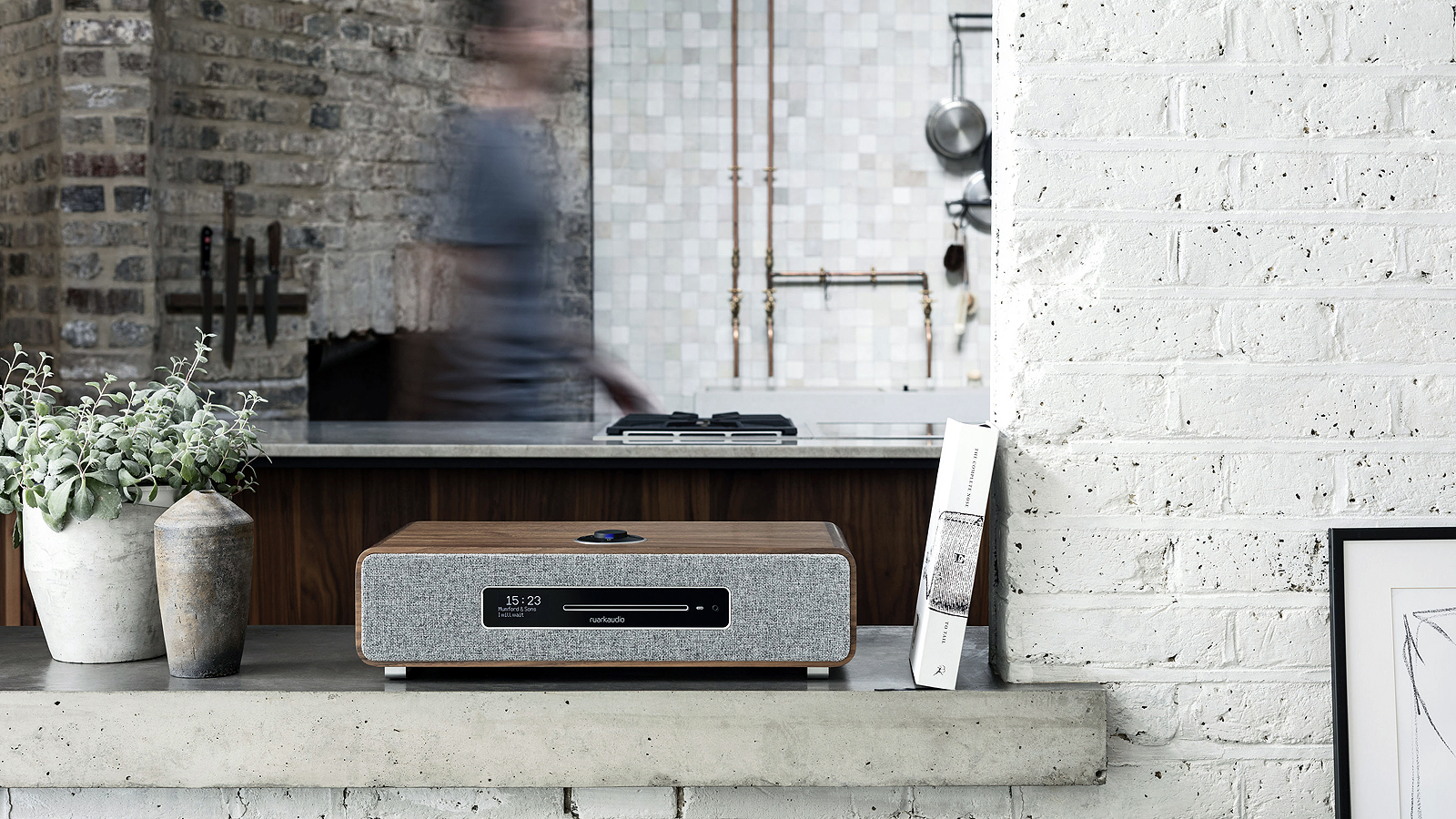

Priced below the Naim Mu-so 2nd gen, the Ruark R5 will do well due to its mellifluous sound quality and inclusion of a CD player and DAB/FM radio. We prefer the Naim in terms of both sound and ease of operation when streaming but this is a worthy challenger, aimed at a slightly different punter
-
+
The kind of sound you can listen to all day
-
+
Includes CD player, just like in the old days!
-
+
And also a DAB/FM radio!
-
+
Lookin' good
-
-
Does not by any means kick ass or take names
-
-
Slightly odd round, dial-based remote control
Why you can trust T3

The Ruark R5, due to its elongated form and the fact it is a wireless streaming, multi-room speaker – among other things – will inevitably be compared to the Naim Mu-so. Now, regular readers will be aware that I LOVE the Naim Mu-so 2. In fact everyone at T3 does which is why we showered it with first a Platinum award and then a T3 Award as the best multi-room speaker of the year. We positively festooned it with a plethora of awards. But never mind that; here's the Ruark R5.
I can't really think of a more diplomatic way to put this, so I am just going to say it. The Ruark R5 is like Naim Mu-so 2 for older people, or at least less techy people. There's nothing wrong with that; we're none of us getting any younger, you know.
To that end the Ruark R5 boasts less thrustingly modernist design than Naim's speaker; mellower sound that, in its own way, is comparably as good; a CD player – remember them?! – and a DAB/FM tuner. The Ruark R5 also gives you a more comprehensive set of connections than its premium rival, including a pre-amped phono input for your record player, on which you might play the hits of The Beatles, or 78s by Vera Lynn.
So for a certain audience the R5 is probably a better buy than the Mu-so 2 – you certainly get more stuff for your money. Let us now consider which one YOU should buy.
Ruark R5: design
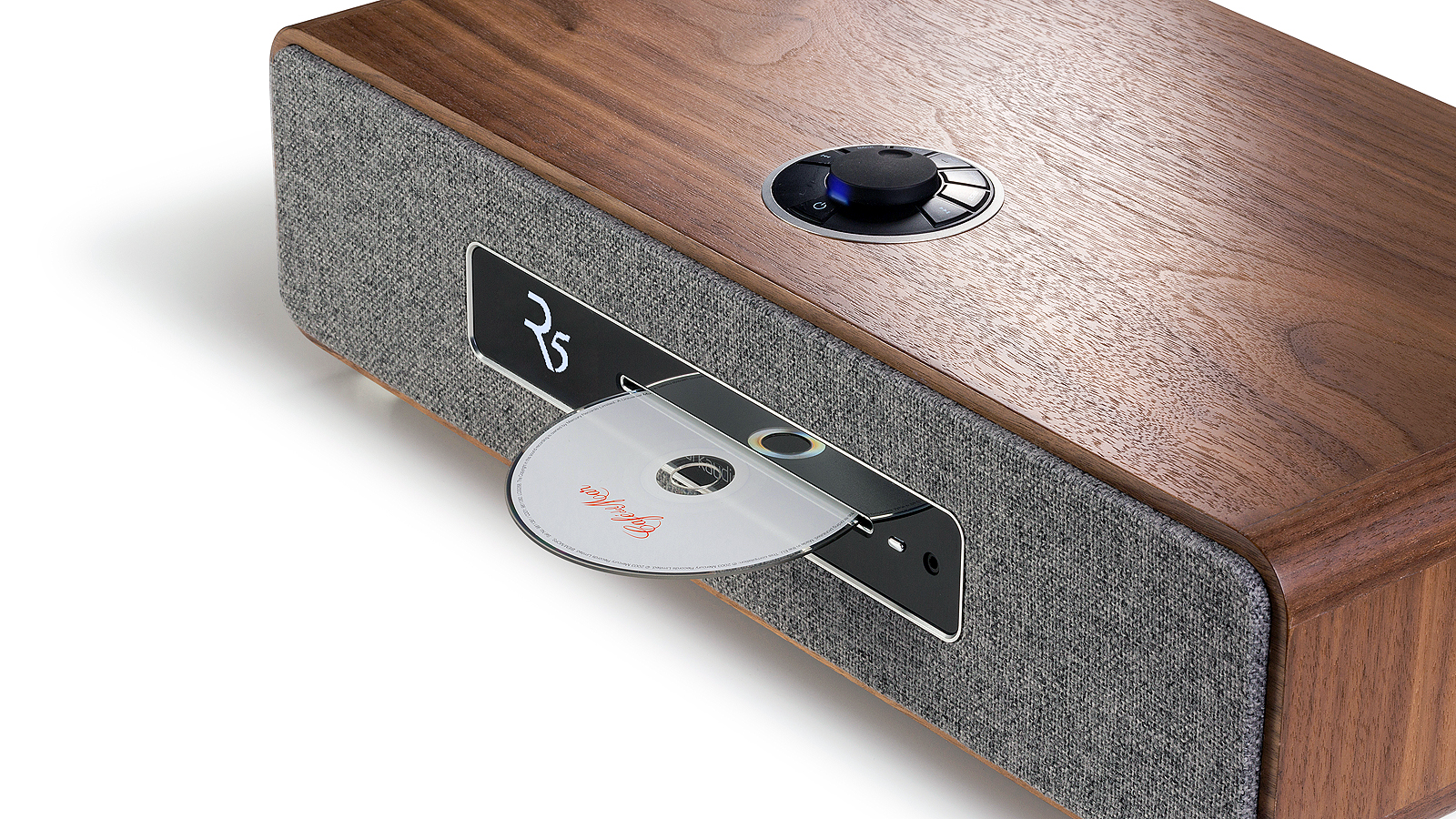
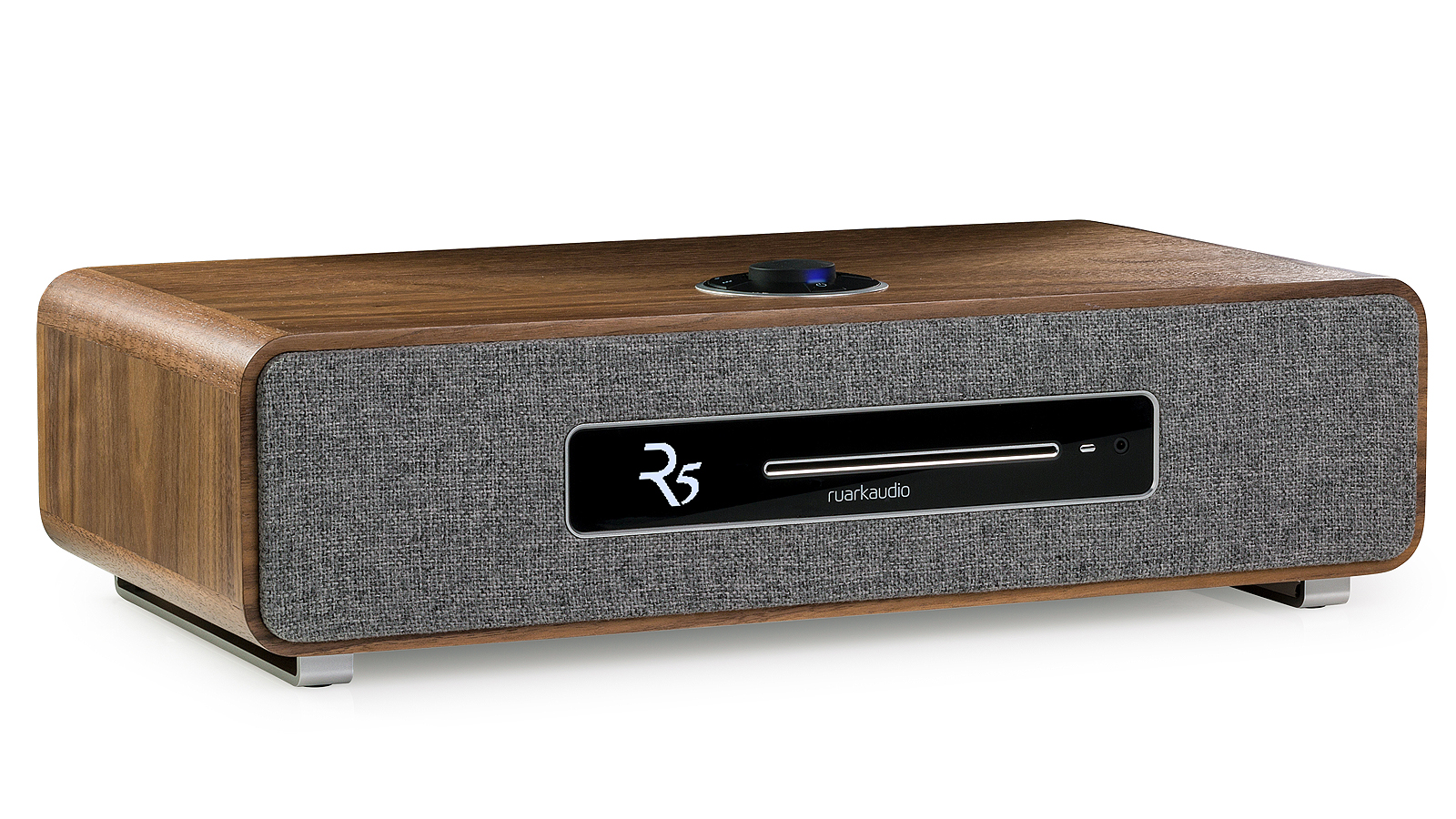
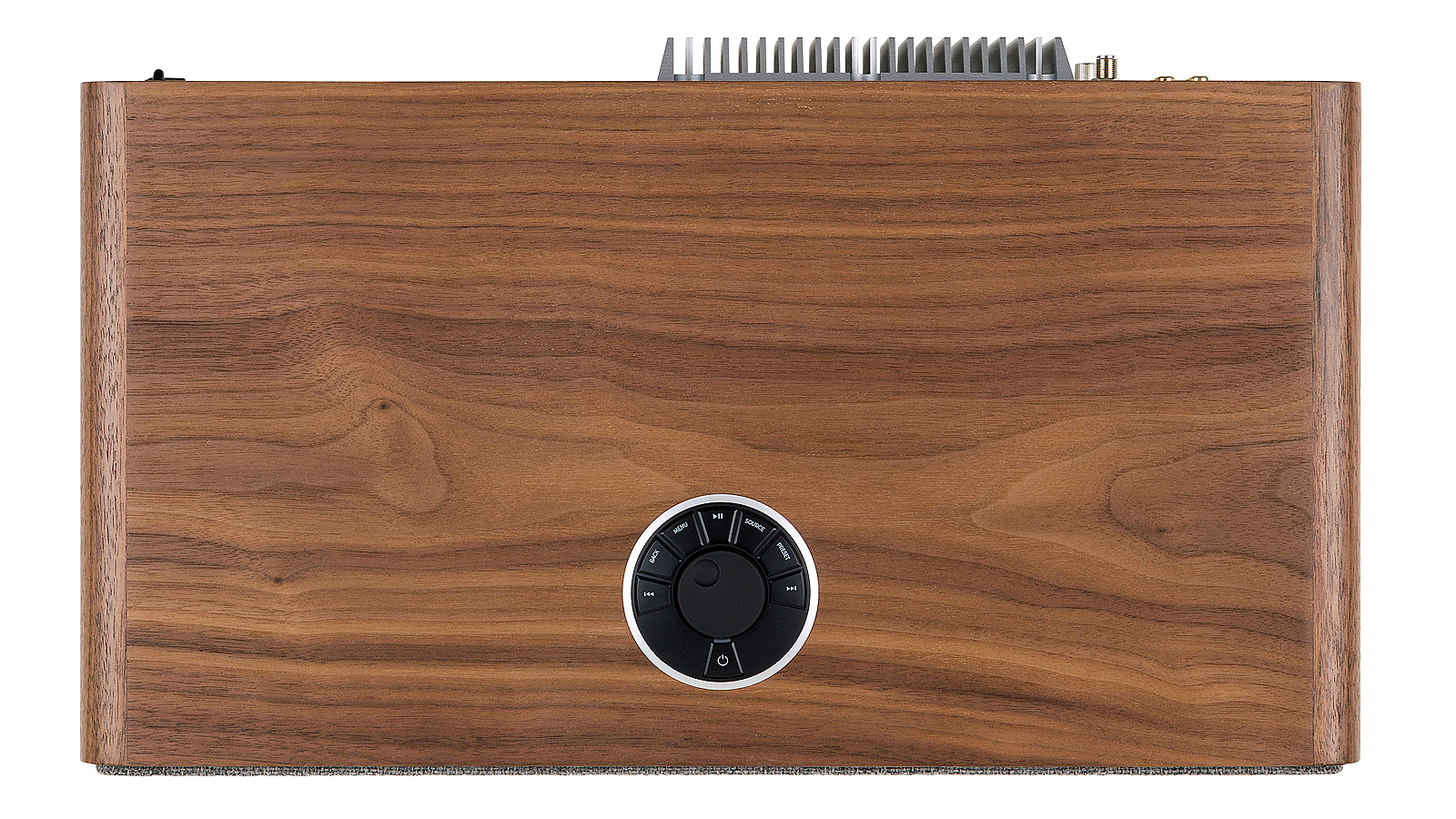
As you can see, the R5 is a handsome, curvaceous fella, sheathed in rich walnut. Those favouring a slightly less retro look can opt for a white lacquer instead, as seen here.
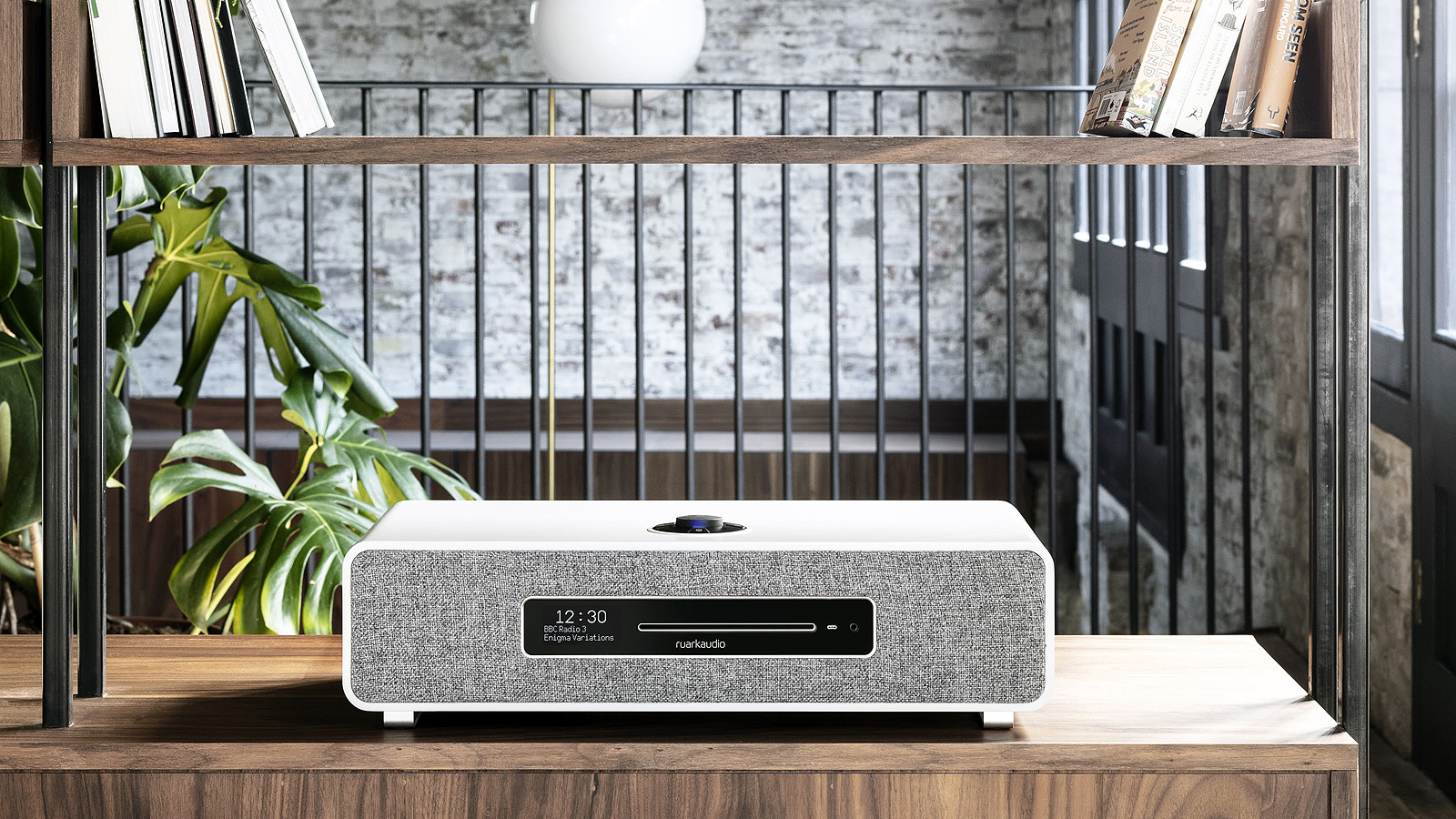
On top there's a RotoDial controller, which is mirrored, form-wise, by the remote control. On previous Ruarks, the controller was detachable so it pulled double duty but I suppose people kept losing them, so now you get a RotoDial on top and a RotoDial to lose down the sofa.
The on-body control is quite handy. I usually literally never use the remote controls on wireless speakers, as employing my phone as the remote seems so much easier and more futuristic. However, since you have to go up to the device to change CDs, I found myself using them now and then. As a remote, I didn't like it as much, so I did generally use my phone.
Get all the latest news, reviews, deals and buying guides on gorgeous tech, home and active products from the T3 experts
The on-device interface for handling Wi-Fi, Bluetooth and switching between the Ruark's many inputs is not great. I'm not sure it's developed all that much since the days Ruark made only DAB radios, and feels about a decade out of date at this point.
Unfortunately the Ruark app is also decidedly clonky compared to that used by Naim, Sonos or even Bluesound. How annoying you find it may come down to what you intend to listen to on your richly veneered new plaything. If it's CDs, radio or tunes via Bluetooth, it won't trouble you much. If you want to use streaming services via Wi-Fi (other than Spotify, which you can just do from Spotify's own app), the experience is a bit doddery compared to Naim's Mu-so 2, which has AirPlay 2, Chromecast and an excellent implementation of Tidal.
Ruark's OS by contrast has no AirPlay, no Chromecast and takes a decidedly basic stab at Tidal. Those with a compatible handset might prefer to use aptX or aptX HD Bluetooth instead, all things considered.
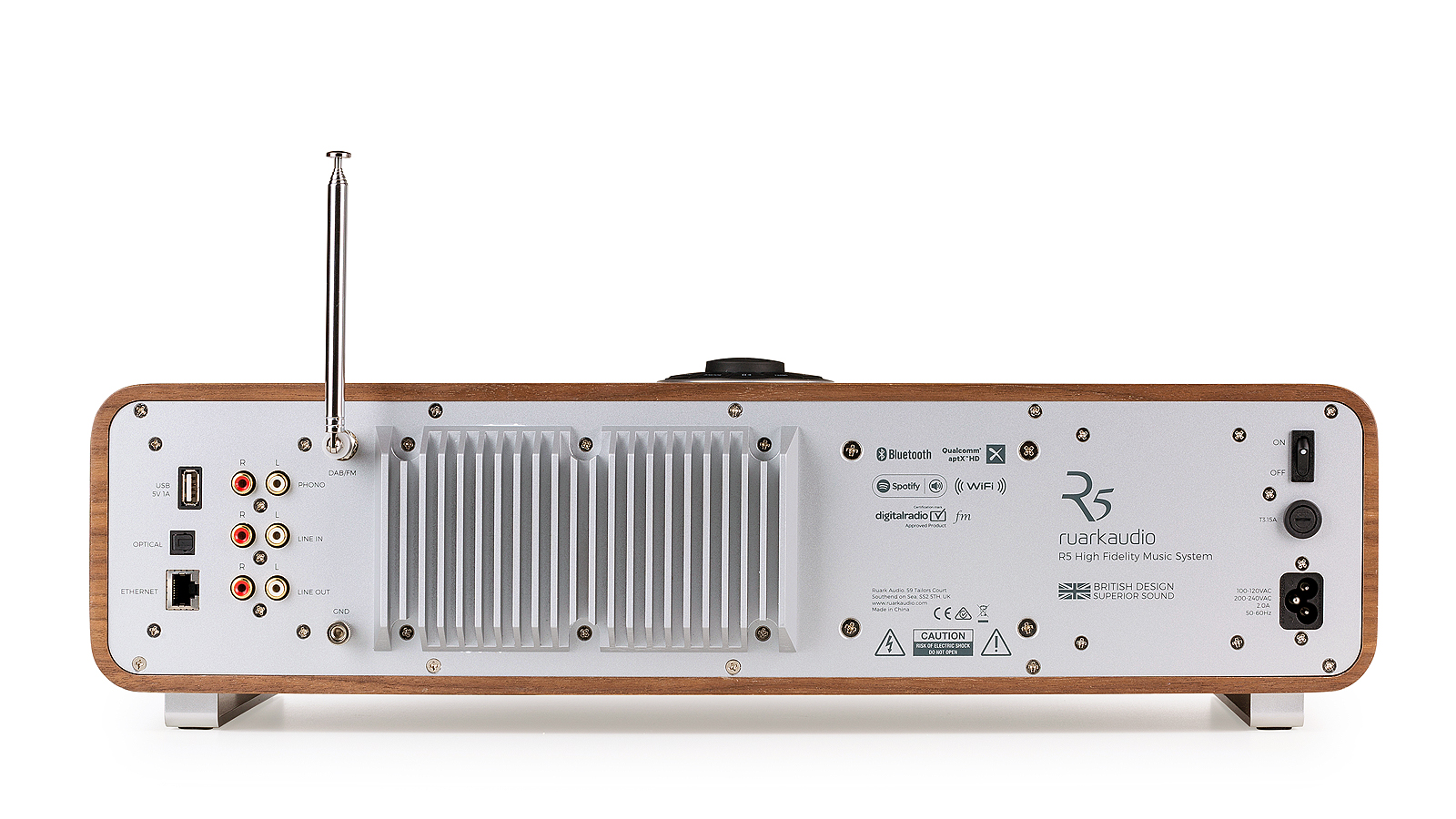
Just look at all those lovely connections!
The R5's connectivity in full is as follows:
USB, multi-format CD, DAB radio, FM radio, internet radio, Bluetooth (aptX, aptX HD, AAC), Turntable Input (dual phono, pre-amped), Line in (dual phono), Line out (dual phono), Optical digital in, 3.5mm headphone out, Wi-Fi, Ethernet. There's no HDMI, so that's one area the Mu-so has better connections.
Unlike a lot of earlier Ruark speakers, this is multi-room ready. Since there's no AirPlay or Chromecast support it can only be used for multi-room with other compatible Ruark speakers, however – primarily other R5 speakers and the larger R7, which is kind of like an R5 on legs, or a speaker disguised as a console table.
Ruark R5: audio
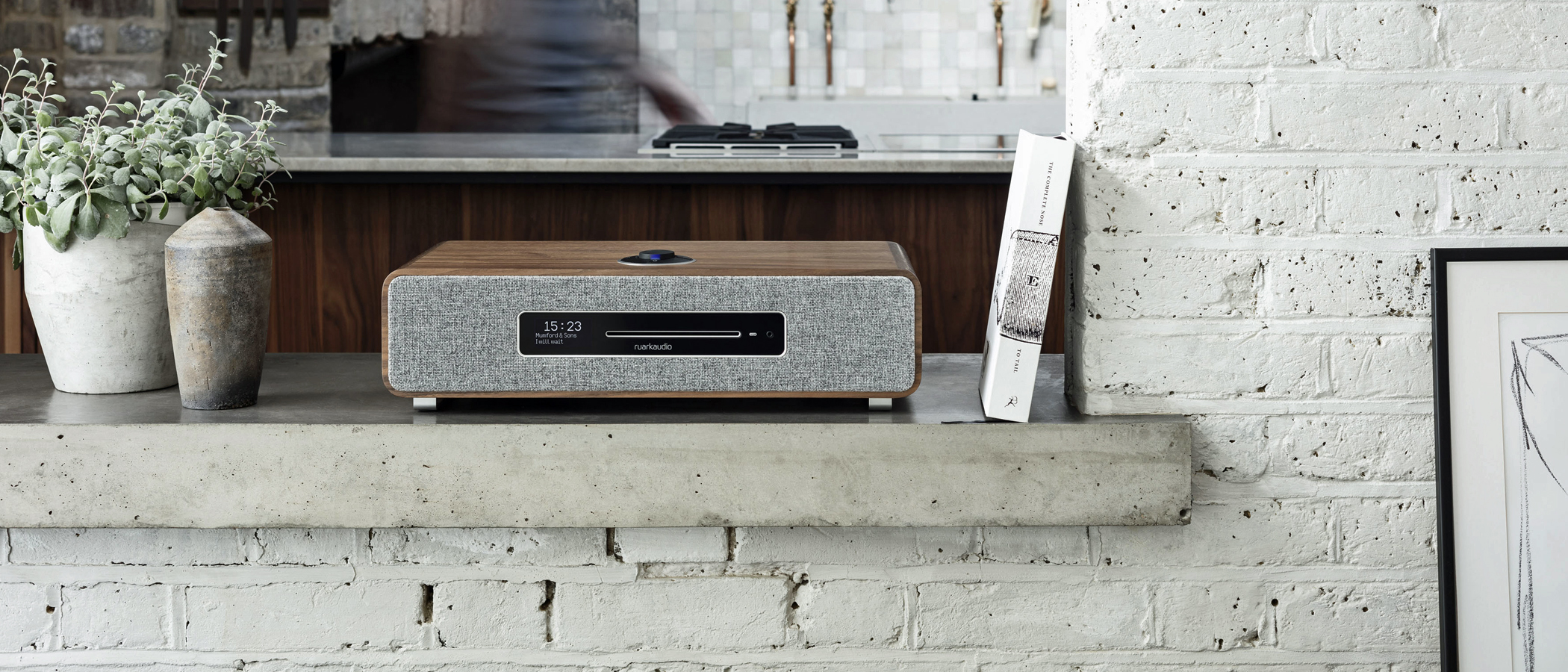
The audio of the R5 is as rich and smooth as its walnut veneer
The Ruark R5 sounds very good. There's nothing to offend anyone, and plenty to please. It is certainly happier tootling out voices from the radio, jazz and classical and the quieter bits on Led Zeppelin albums. Unlike previous Ruarks it isn't so polite that it can't even deal with earthier musics, though. There's plenty of bass and even what's described as a subwoofer, whose volume can be controlled independently of the bass and treble – this reminded me a bit of 80s cassette players, which always had 'bass boost' as a feature.
That being said, the R5 is by no means a kick-arse kind of speaker, and compared to the Mu-so 2, which is like being run over by an express train in full flight when cranked up, it is still quite polite.
Sure, this Ruark speaker can muster up a bit of bottom end oomph for modern hip-hop and dance 'choonz', but it still slightly has the air of a vicar running a youth club disco when doing so. When it comes to dancing it's much happier with the orchestral sheepskin-rug soul-funk of Barry White or Isaac Hayes than anything made post 1992. If it's time to rock, it'd rather Neil Young or The White Album than Slayer. But that's fine.
Again, I don't want to stereotype the Ruark audience but it has always struck me as slightly older, not in such a hurry, and with a preference for more restful sounds. So the relative slowness of the app won't bother them – or they won't even use it – and they'll love the CD player and radio, both of which are all but useless to younger, digital native punters. Anyone who isn't a full-on metal head, trap rap addict or member of the junglist massive can't help but love the sound of the Ruark because it's brilliantly listenable: crisp, involving, accurate and smooth enough to listen to all day long.
Personally, I'm old enough to have 1000s of CDs and to love the radio, but I don't want to listen to CDs, or bother with an aerial to listen to the radio. It's 2019, there's Tidal and web radio to tuck in to. And I also much prefer the more powerful sound of the Naim. And the more aggressive, futurist look. But hey, that's just me.
Ruark R5: the rivals
The obvious speakers to also consider if you're thinking of buying the R5 are the Naim 2, although that is a touch more expensive, the Bowers & Wilkins Formation Wedge, which is about the same price, and the original Naim Mu-so, which is cheaper but may soon sell out.
Clearly if you want to play CDs and broadcast radio, the Ruark R5 is the best value proposition. If you mainly want to stream over Wi-Fi, I'd recommend any of the rival products as they have better wireless connectivity options. These are AirPlay or an excellent app on the Naim speakers (with Chromecast as well on the Mu-so 2), and AirPlay alone on the Bowers & Wilkins speaker. B&W's option is also notably more compact, although also somewhat weird looking.
Ruark R5: release date, price
Ruark R5 is on sale now and available from a fairly select group of retailers, most notably John Lewis. It costs £999.
Ruark R5: verdict

If you want a fairly compact system to do many things, the Ruark R5 could be ideal for you
The Naim Mu-so 2 remains our number one wireless speaker.
However, the R5 adds a CD player, DAB and FM radio, turntable input and line in with proper dual RCA connections, and aptX HD Bluetooth and as such is a superior all-in-one, one-box device. If you really do listen to music from a variety of sources, including 'legacy' ones that are not web-based ones, it's a very strong option.
Surely most people reading this will not really need any of those extras, however. Not only that, but anyone wanting primarily to stream over Wi-Fi is likely to find the app for doing so a little aggravating. They certainly will if they've ever used a Naim speaker, because that brand's app is so much better – and even if you don't like Naim's app, it can be ignored entirely in favour of AirPlay or Chromecast.
The style, build quality, sound, versatility and value for money of the Ruark can't really be argued with. Despite that, and while it's a jack of many trades and master of several, it's not the best speaker for wireless streaming, nor the best sounding speaker in its class.
As a latterday reboot of the mini system, it's hard to beat, though.

Duncan is the former lifestyle editor of T3 and has been writing about tech for almost 15 years. He has covered everything from smartphones to headphones, TV to AC and air fryers to the movies of James Bond and obscure anime. His brief is everything to do with the home and kitchen, which is good because he is an excellent cook, if he says so himself. He also covers cycling and ebikes – like over-using italics, this is another passion of his.